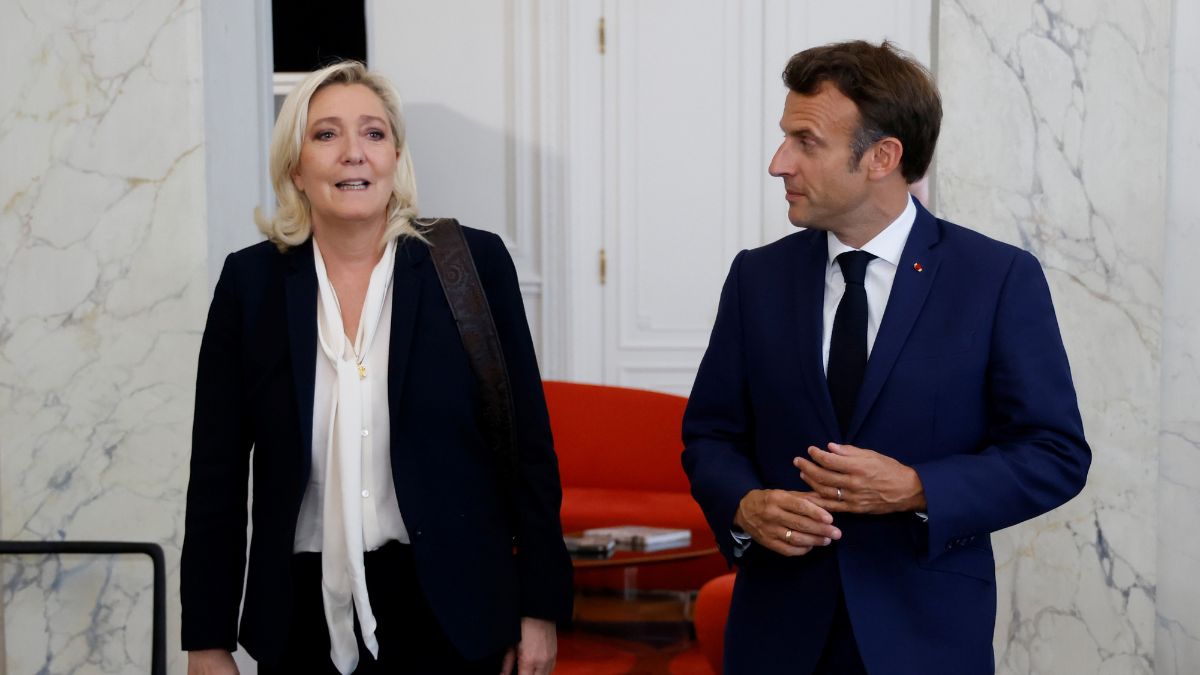Today (June 30) is one of France’s most consequential political moments in recent history, as it votes in legislative elections, which will unfold in two rounds on June 30 and July 7.
The outcome of these elections holds profound implications not only for the nation itself but also for its role within the broader European context. At stake is the potential ascendance of the far-right National Rally (RN) to a parliamentary majority, a scenario that could significantly reshape domestic policies and international relations under the leadership of Marine Le Pen’s party.
How did it come to this?
The decision to call for early elections by French President Emmanuel Macron came swiftly on the heels of a devastating defeat for his centrist Renaissance party in the European Parliament elections.
This surprise move, unprecedented in recent French political history, was motivated by Macron’s desire to regain control amid a political landscape increasingly dominated by polarization and populist sentiments.
In Macron’s own words, the call for elections was a response to the need for a new coalition that could better reflect the diverse political spectrum of France, while countering what he termed the "extremist fever" pervading the country.
His party’s inability to secure a parliamentary majority has necessitated frequent resort to presidential decrees to pass legislation, a practice that has strained relations with opposition parties and stirred public discontent.
Impact Shorts
More ShortsWhat is the electoral process in France?
The French parliamentary elections operate under a two-round system, where candidates vie for 577 seats in the National Assembly.
To secure victory in the first round, a candidate must obtain more than 50 per cent of the vote and the support of at least 25 per cent of registered voters.
Also Read: Who is Jordan Bardella, 28-yr-old Marine Le Pen protégé who could be France's next PM?
Failing this, the top two candidates proceed to a runoff, joined by any who garnered at least 12.5 per cent of registered voters, ensuring a competitive second round.
Historically designed to curb extreme political influences, this system now faces a pivotal test with the rising mainstream acceptance of the RN, which currently holds 88 seats in parliament but seeks to expand its influence significantly.
Who are the key players in the French elections?
The contenders in this electoral showdown represent a spectrum of ideologies and strategic alignments. Macron’s Renaissance, the largest party in the current assembly with over 170 MPs, champions a centrist, pro-European stance but has faltered in public approval amidst contentious reforms. Polling at 19 per cent, its electoral prospects are uncertain amid shifting alliances and voter sentiment.
In contrast, the RN, led by Marine Le Pen and her protege Jordan Bardella, has emerged as the leading opposition force with a polling percentage of 33 per cent. Despite efforts to moderate its image, RN remains rooted in populist, nationalist rhetoric and advocates policies such as a “national preference” for French citizens and stringent immigration controls.
The left-wing coalition, Nouveau Front Populaire (NFP), comprising Jean-Luc Mélenchon’s France Unbowed, Socialists, Communists, and Greens, presents a formidable alternative with a potential to garner up to 30 per cent of the vote. Their platform promises to roll back Macron’s reforms on pensions and immigration, highlighting a stark choice between the far-right RN and their progressive agenda.
What may be the outcome?
Forecasts for the election outcomes remain speculative given the volatile political climate. Analysts predict that while RN may not secure an absolute majority, it could significantly bolster its parliamentary representation, potentially tripling its current seat count.
This scenario would thrust Macron into a precarious position of negotiating legislative compromises with opposition parties, possibly leading to a gridlocked government and political instability.
Also Read: Macron Warns of a Civil War in France
Moreover, the prospect of “cohabitation,” where a president and prime minister hail from opposing parties, looms large, a situation not witnessed since Jacques Chirac and Lionel Jospin’s tenure in the late 1990s.
Macron’s ability to appoint a prime minister agreeable to a potentially adversarial parliament could determine the efficacy of governance in the coming years.
How will France’s role be affected in the EU?
Beyond domestic ramifications, a shift towards a more polarised parliament could impact France’s role within the European Union and its global alliances. Issues such as economic policies, defence commitments, and international diplomacy would be subject to heightened scrutiny and negotiation, potentially influencing France’s stance on critical international matters.
Whether France leans towards a far-right majority, a leftist resurgence, or a fractured coalition, the results will undoubtedly reverberate across Europe, influencing policies and alliances in an increasingly divided geopolitical environment. The eyes of Europe are keenly fixed on the forthcoming electoral verdict, anticipating its implications for the future of French democracy and its broader continental impact.
With inputs from agencies


)

)
)
)
)
)
)
)
)



